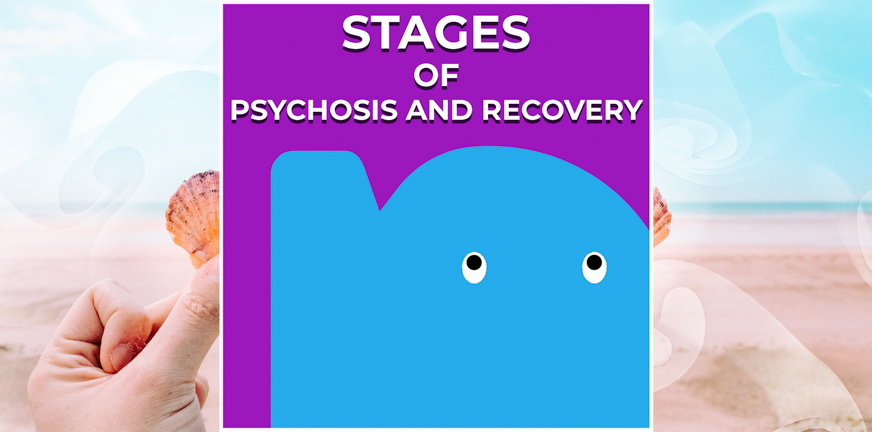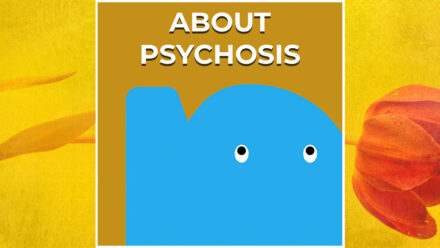
Roughly speaking, there are five stages from the time of your first psychotic experience to the moment you have learnt to deal with them. The course of psychosis and recovery is best described as a process in which you steadily regain control of your life, by learning to deal with your vulnerability. The exact process is different for each person. Because everyone has a unique relationship to their psychotic experiences.
- Stage 1: Early stage
- Stage 2: Being Overwhelmed by the psychosis
- Stage 3: Struggling with psychosis vulnerability
- Stage 4: Living with psychosis vulnerability
- Stage 5: Life after psychosis
No two psychosis are ever the same. Some people are hearing voices, others are not. Some are hearing voices that are quiet and friendly. Other’s voices are hostile and very dominant. The meaning and substance of the psychosis can be connected to past events (including traumatic experiences), while for others there is not such a clear link. And what triggers a psychotic episode, also differs from person to person.
Some people see their psychotic experiences as important spiritual messages – others as a sign of illness.
So there is a lot of variation. But crudely speaking, the time from your first psychotic experience to your recovery can be divided into five stages. It is a step-by-step process of discovering your strengths and learning to deal with your vulnerabilities.
Five stages of psychosis and recovery
The five stages of psychosis and recovery is not a law of nature. It is only a rough model. These stages are primarily based on what many people who experienced psychosis have said about what they have gone through. Secondly, on clinical knowledge from professionals in mental healthcare. In reality, the process of recovery from psychosis is different for everybody. Everybody goes through their own unique journey.
Important to know is this: the old, outdated view of psychosis described only two stages: the acute and the chronic stage. According to this view, the acute stage (the psychotic episode) was always followed by the chronic stage. In other words: you were seen as disabled for the rest of your life. Fortunately, we know better now.
Because recovering from psychosis is definitely possible, the modern view thinks in terms of psychosis and recovery. Recovering from psychosis is a complex process. Recovery is possible by getting to know your own vulnerability AND strengths. That way you can learn to deal with them, live your life and experience a meaningful existence again. Your family and friends play an important role. Recovering is something you do yourself, but certainly not on your own.




